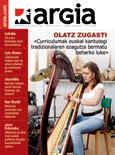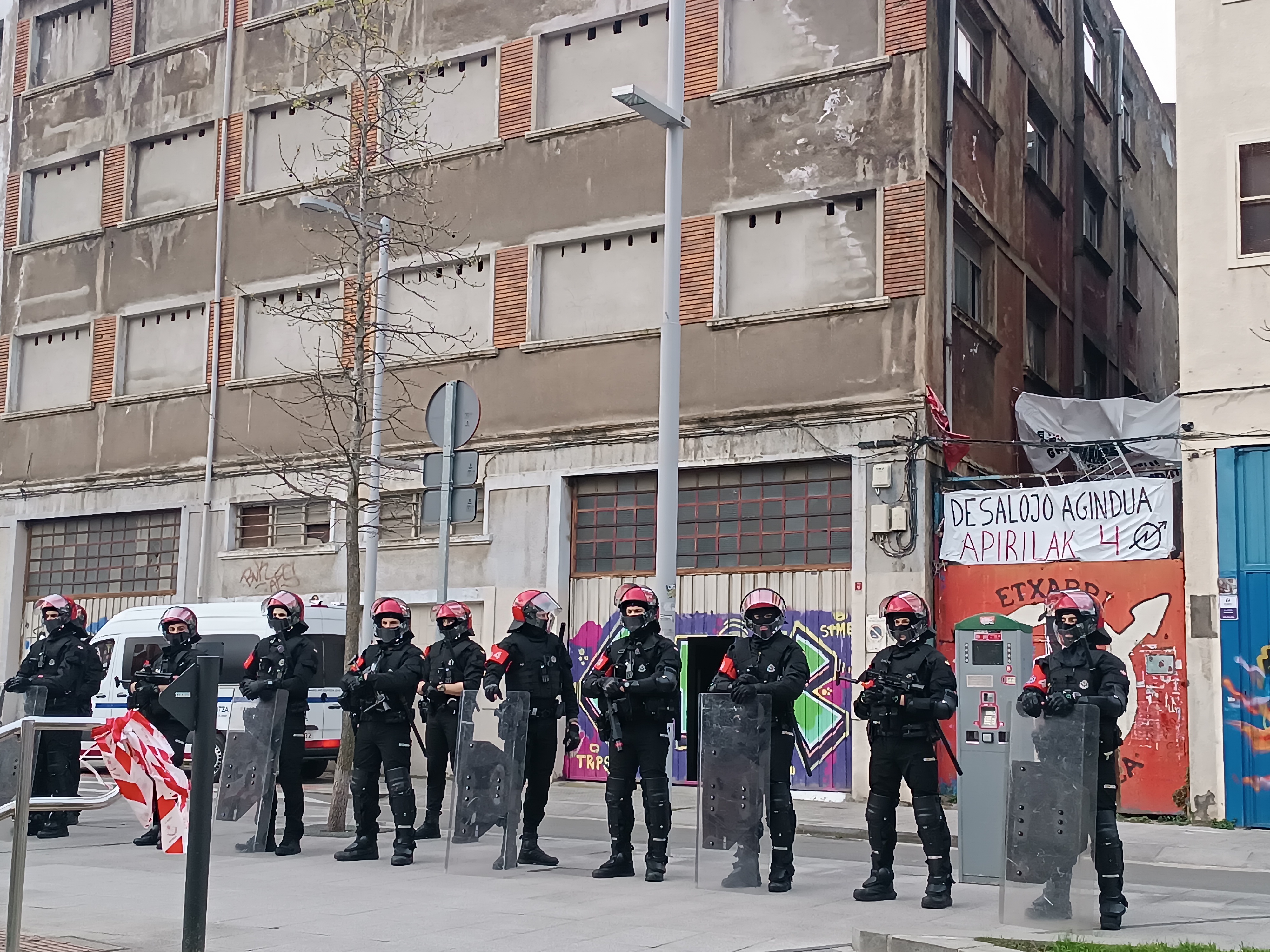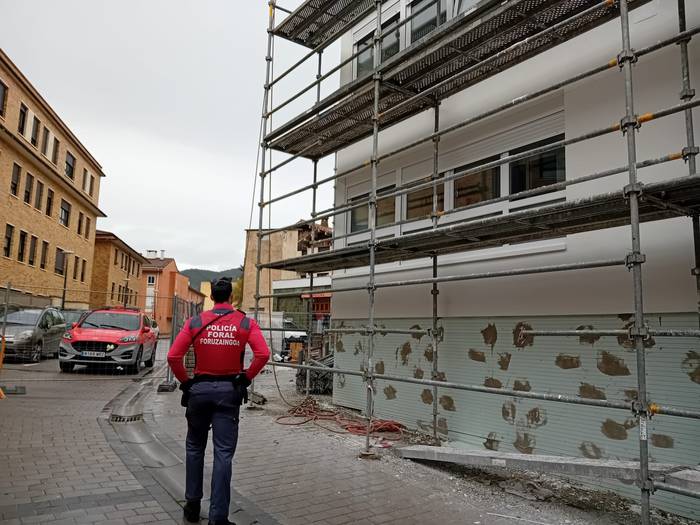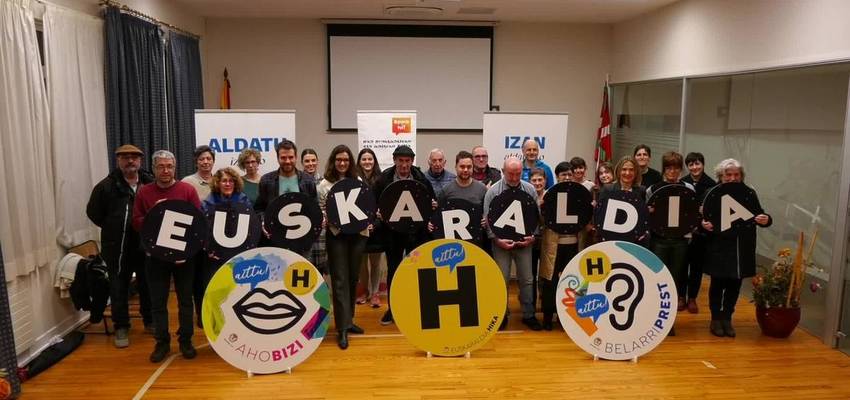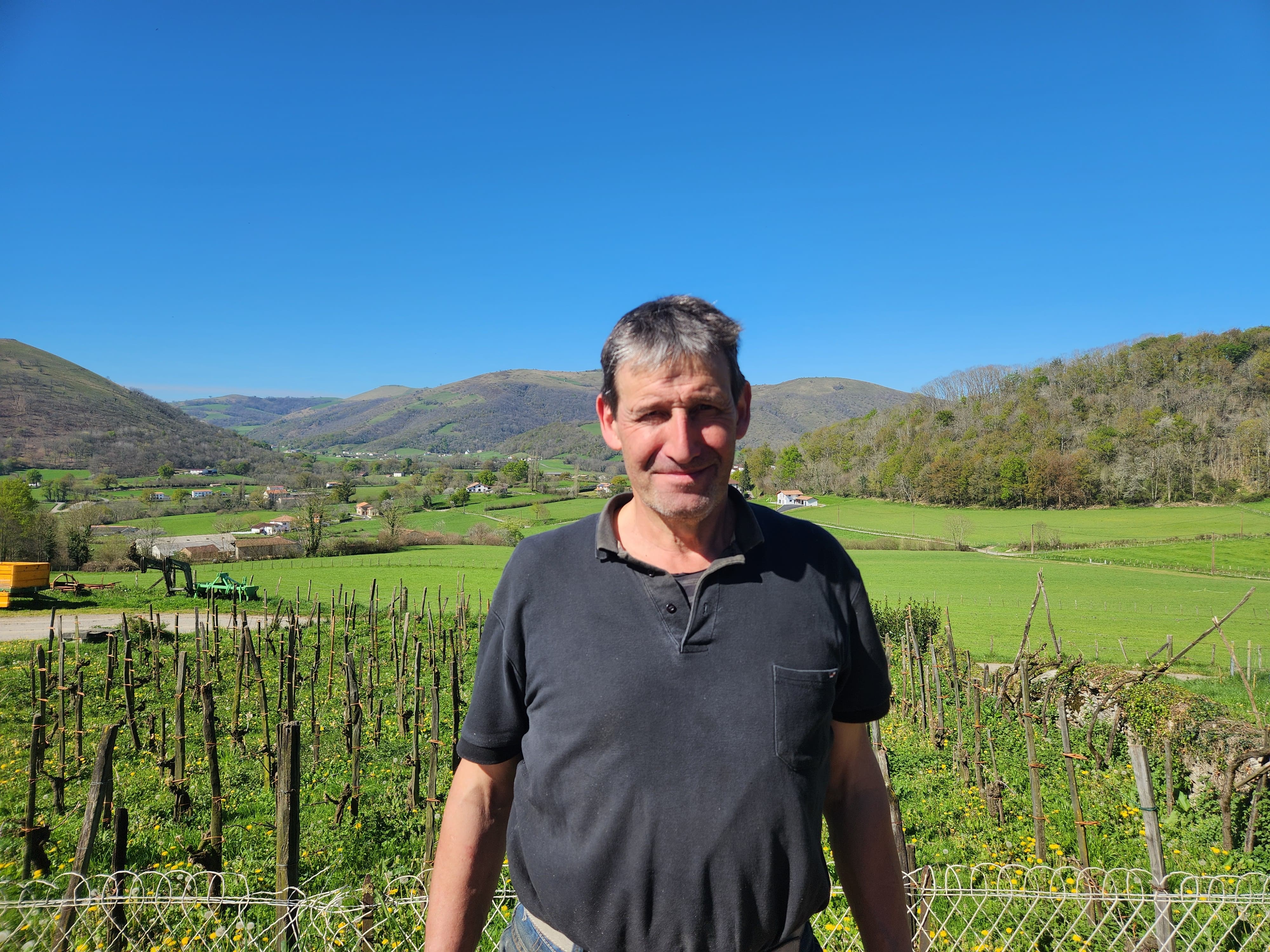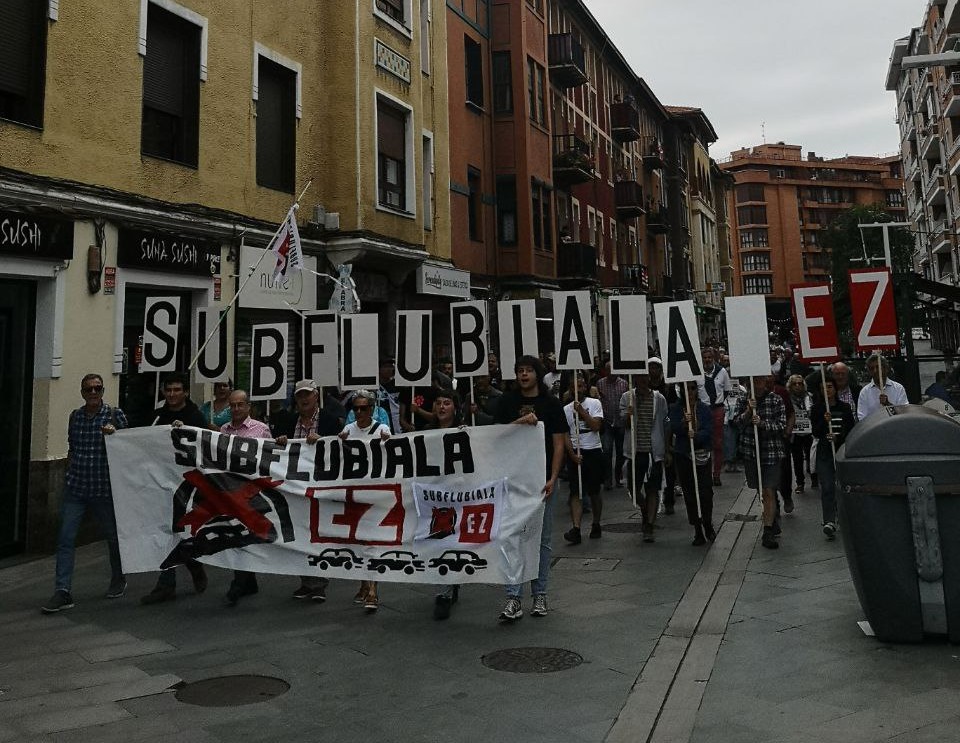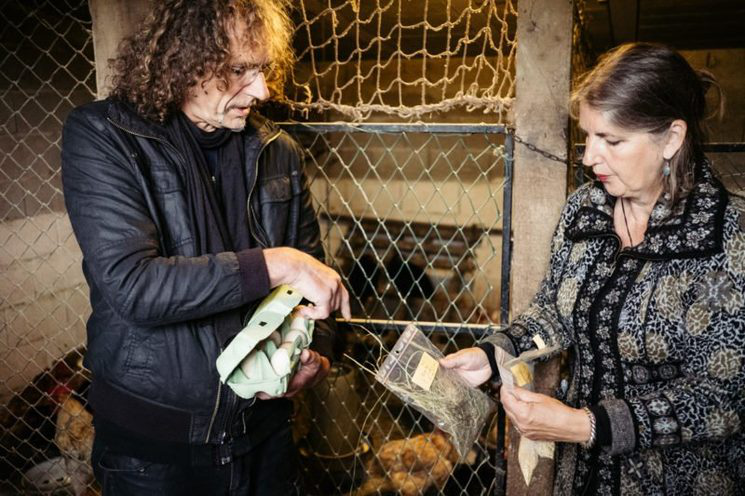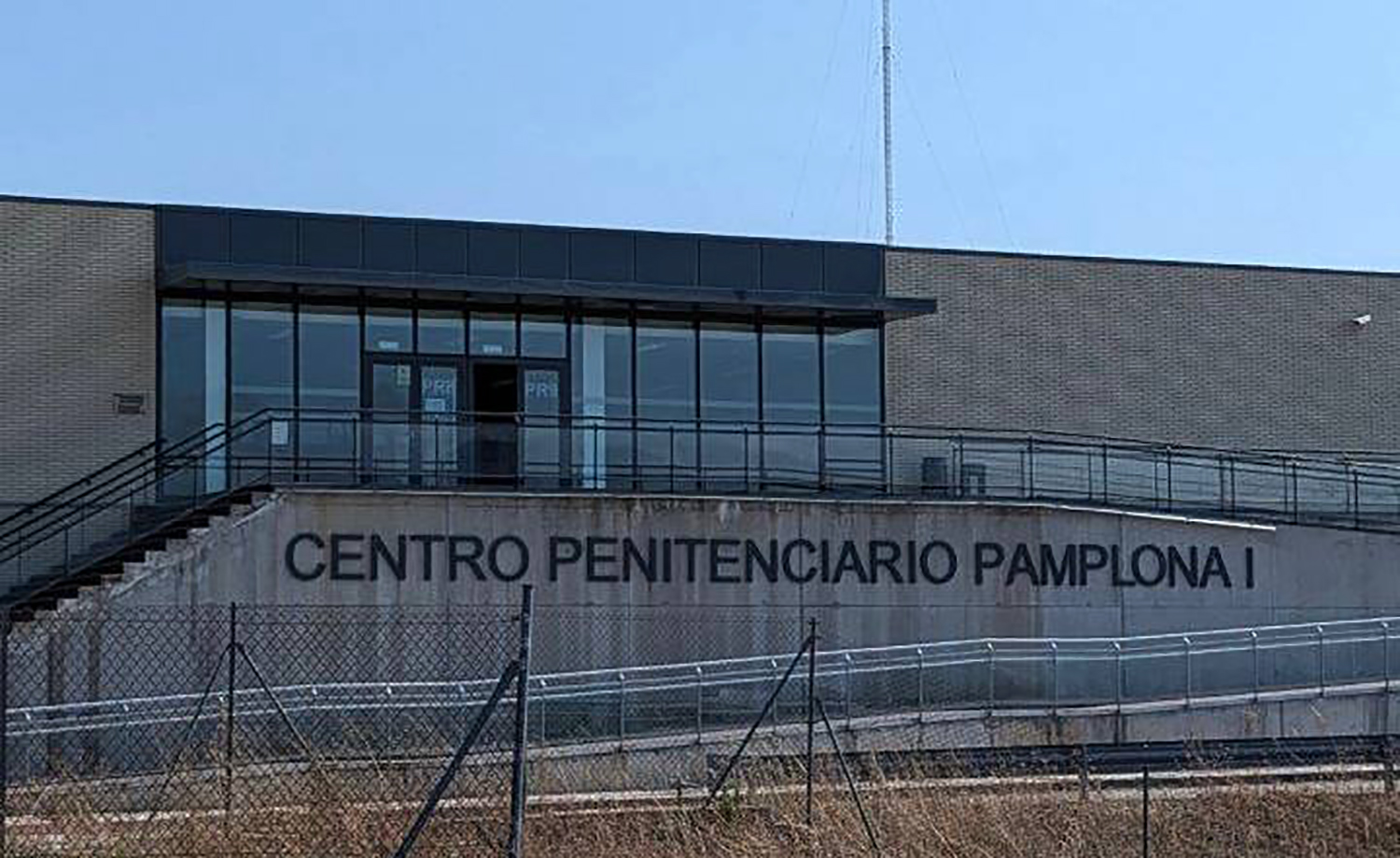"I lost the tour for half a minute with Poulidour"
- In the 1960s, Luis Otaño Arzelus (Errenteria, 1934) won the Spanish Championship twice and took part in the Tour on ten occasions. We have brought to light the stories of Otaño to the Chronicle of Hernani about cycling at that time.
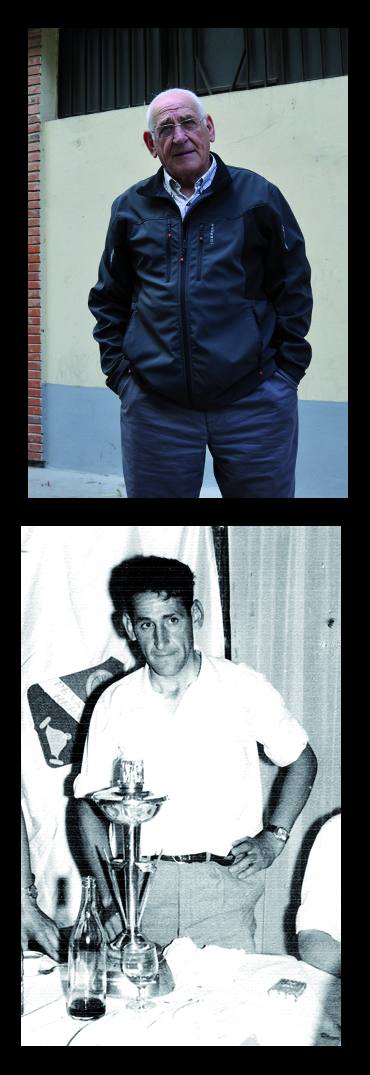
You were a hardworking cyclist, Luis.
The worker, and he was trying to help everyone. One more platoon. I was one of those who today call them gregarians.
You jumped the pros with the Peugeot team.
It was in 1959, with the Peugeot house. With those who made cars, bicycles and motorcycles. We left Elgeta, Durango and Urkiola at the Eibar-Gasteiz time. The clocks that the cyclists make are supposed to complain about today, but those of that time were about 80 kilometers... On that time I went a little back and the Frenchman Roger Riviere (leader of the Peugeot team) who came out after me won. Suárez did second and I did third. Riviere didn't catch me until I got to Vitoria and said: “I want that kid on my team.” The Peugeot asked for me and they took me to France. I was on that team in 1960 and 1961 with people from all over Europe. There were Dutch, Germans, Belgians and English on that team, but just like in football, they decided to limit the number of foreigners in those years. It was then that the Margnat-Paloma group was formed, with Bahamontes, Campillo and me. It was a team from Marseille: We used to go to Margnat for wine, Paloma for bicycles and Motul for oil advertising. The three of us in the Spanish state who were there called us the three musketeers [the three musketeers].
You walked through those years with many peloton myths: Coppi, Riviere, Anquetil, Poulidour, Van Looy, Stablinski, Gimondi, Merckx... What was your relationship with them?
I was rarely with Merckx, only at the end of my career. It was only in a few races on the Belgian side. Today the peloton roosters are quite similar, but at that time they stood out more. We didn’t even have a doctor in those days. No vitamins or anything; if we had EPO we would have taken it back then, uh... [with irony]. Then each of us would go to his house, take two plates of beans, and move on. Great cyclists should also be considered. Anquetil and Poulidour were very good and the rivalries between them were huge. I'll tell you an anecdote about those two. When Anquetil was in very poor health, Poulidour was told whether he should not go to the hospital to visit his rival. Finally, he went to the hospital to see the great Jacques Anquetil. Anquetil was at the end and when Poulidour, a French cyclist who had always walked in the shadow of Anquetil, visited him, he said: ‘I’ve always been ahead of you in the races and now it will be like that at the hour of death.’ Poulidor was a bit of a pessimist on top of that. At one stage of the tour we were both accompanied by Manzaneque and Bahamontes, and Poulidour was the leader. He offered me money to help him against Anquetil. I asked him ‘how much?’ and he didn’t answer. Of course, I didn’t shoot. We were trapped for 20 kilometers and Poulidour got into a hole in the road and fell. Due to the anger generated by the fall and the change of bike, he lost two minutes and leadership at the finish line.
How did you meet the founders of Peña Otaño Hernani?
I was in the military with them. Joxe Santana, Lareki and Patxi Gorfami were the ones I met during my military service and they named the association after me. At first they had their place on Calle Oarso and later they came to the current one. Some of them came to the races to cheer me up and I appreciated it very much.
How did you run the races?
We woke up between 5 and 8 in the morning depending on the time of departure of the race and the number of kilometers. Take a bowl of rice and hit the road. At least 160 km. We did it, and the longest stages were 330 km. They could become. The stages of 240-250 km were normal. In the last Tour I did I remember the stage of more than 300 km: we left at 5 in the morning, when the sun had not yet risen. The Swallows were there with great singing screams. There was a beautiful difference with today. We were a group of twelve – fourteen: two mechanics, two masseurs and cyclists. We often had to sleep in pensions. Getting there and ‘4. The front desk said, “Get your bike on your back and get up.” Cycling has improved in recent years, we were slaves.
Working for others, you’ve got a good track record, right?
Well, it's not that bad. Now those who ride bikes have gotten better, eh!
You won the Tour in Bourg d’Osains. How did you win that stage?
There were a couple of San Sebastian cycling judges on the tour and then a lot of people came to see the race in France. These two judges told me: “You have to attack tomorrow.” The other day we had the clock and I took it easy to save the strength for the next day. I had thought about which slope or where to attack, and I came out with a lot of strength. Some cyclists who came out of the peloton with me shouted at me to slow down, but I replied that I was slow on the clock. The only ones who resisted the attack were the Spaniards Julio Jiménez and Galera, and I wheeled them all the way up. I started the diarrhea vigorously and they also complained that I was going down too fast. The road had many holes and the bike was very difficult to dominate. As a result, after I entered one of these holes, I stepped out of the way and grabbed the column on the side so that it wouldn’t fall. Grabbing the column, I took two laps without falling off the bike and managed to get back on the road. Making a dangerous descent like this, I took Jimenez and Galera off the wheel, and that’s how I got to the finish line in Bourg d’Osains in first place.
You also performed beautifully in the Spanish tour. You won three stages, five days with the yellow jersey and you managed to finish second in the general classification. In addition, you won one of these stages in San Sebastián and you dressed in yellow. It would have been beautiful to enter the velodrome of Atocha victoriously and acquire the leadership of the Vuelta.
Yes, they said that, at that stage, Pérez Francés (my teammate) brought Poulidour on the wheel to the finish line; and then in Madrid with Poulidour I lost the Spanish Tour for 30 seconds. This stage came out of Pamplona and when we arrived at Elizondo the Spaniard Gómez jumped from the peloton and followed Momeñe, the District, Uriona, Fulgencio Sánchez, Beltrán, Cazal, Melckenbeeck, Desmet and myself. I went up to Aritxulu to attack and then I gave everything in the diarrhea too. As I was coming down I heard a local saying, ‘This doesn’t appreciate life very much...’ I only got to the velodrome and when I just needed to turn around inside the velodrome, a hernanian who was a race judge badly signaled the entrance to the velodrome. I turned around the velodrome in the opposite direction and found the cyclists following me in front of me inside the velodrome of Atocha. Maybe I misunderstood him, but in the end I won the stage.
The chroniclers of the time said that you saw tears on the podium in Madrid. Why were they: for the joy of being runner-up or for the pain of being second?
I took the outcome of that Vuelta by sports law. It's a sport and the other one beat me. Poulidour was more than me and that's it, you don't have to give him any more turns.
Is it true that you went to Italy by bike to train for the World Championship?
Yes, the World Cup was to be held in Italy and the coach told us that we would go by bike to Brescia. He used to drive in front of us and take hotels for us to sleep. We left Saint Etienne because I lived there, and after passing the Alps and about 700 km. We got on the bike and then we got to Lake Como in three days. Even from Saint Etienne I sometimes went to Errenteria. I left at night and was home in the morning.
Do you support your friends when you were cycling?
Yes, a lot. Carlos Etxeberria, Antonio District, Vélez, San Miguel, Gandarias... Most of them are from Bizkaia, but I also have Gipuzkoan people: for example, Txomin from Peru or Iragorri. I am also still in contact with some French and Belgian. We recently met to pay tribute to Darrigade.
Which were tougher, the Tour de France ports or the Giro d’Italia ports?
Tourmalet is the toughest port I've ever climbed. At least for me. I didn't get along in the long mountains... because I was climbing them with force. Here in the surrounding mountains I didn’t miss much space with other cyclists, but in those long slopes of the Tour... In addition, in those times they were not paved as they are today. In the middle of the road there were channels through which the waters of the mountains descended and this water came very cold. That water was cutting your legs off. I don't know the ports of the Giro d'Italia, I've never raced in them.
I'm talking about Interview. With water and sand
Authors: Telmo Irureta and Mireia Gabilondo.
The actors: Telmo Irureta and Dorleta Urretabizkaia.
Directed by: Assisted by Mireia Gabilondo.
The company is: The temptation.
When: April 2nd.
In which: At the Victoria Eugenia... [+]
Euskal Herriko Laborantza Ganberak hogei urte bete ditu. 2005ean sorturik, bataila anitzetatik pasa da Ainiza-Monjoloseko erakundea. Epaiketak, sustengu kanpainak edota Lurramaren sortzea, gorabehera ainitz izan ditu hogei urtez.









